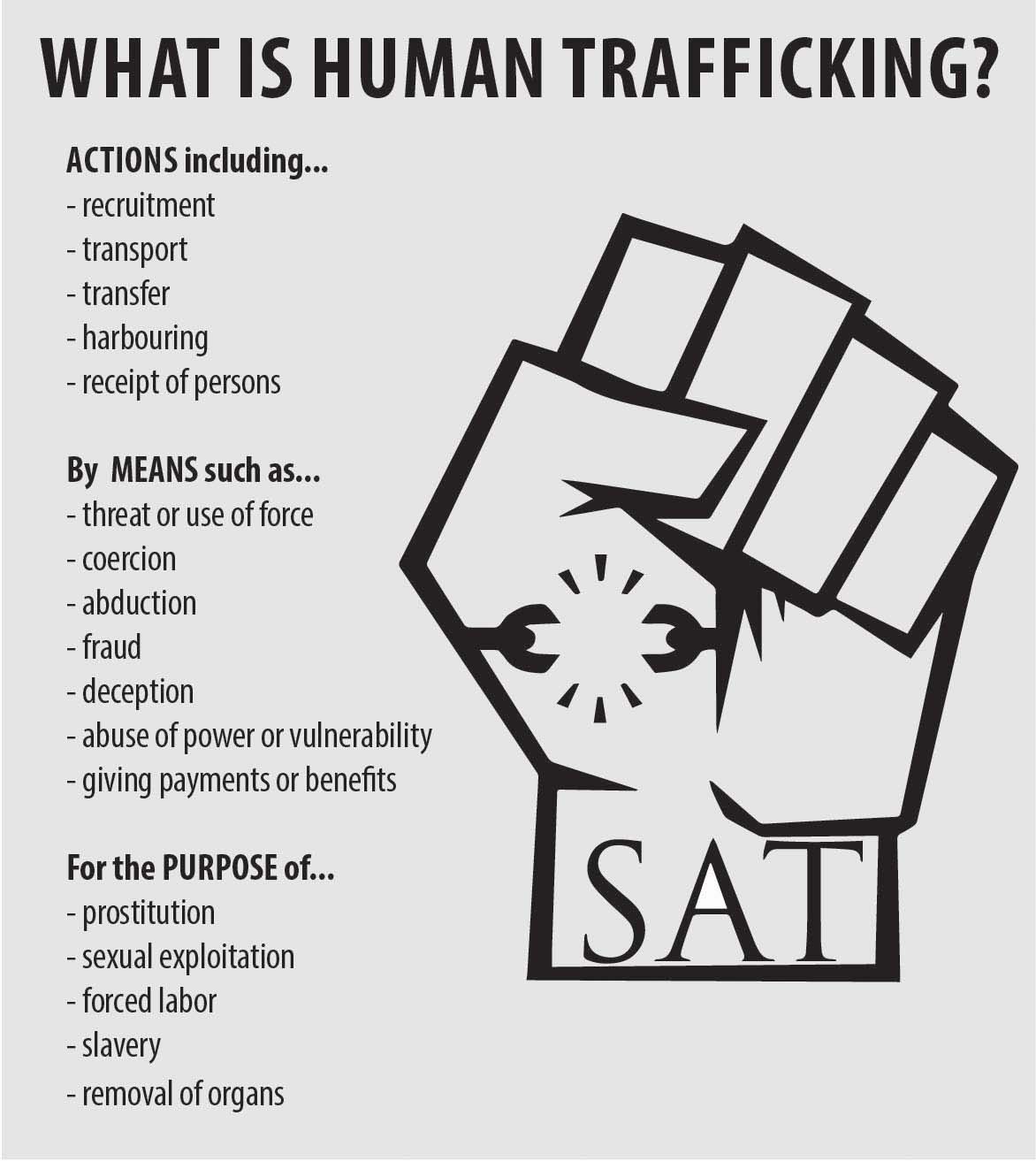
Students Against Trafficking promotes education about human trafficking
Two years ago, USD offered its first human trafficking course on campus which sparked a move to start a new student organization, Students Against Trafficking.
A group of students was particularly motivated by this class to continue making a change and educating students about human trafficking.
Bridget Diamond-Welch, criminal justice professor and Students Against Trafficking advisor, said she was happy to see the students get involved.
“If you look at the reality of human trafficking, most people don’t even know what it is,” Diamond-Welch said. “They get images of someone being taken or kidnapped and put into the sex slave trade. That does happen, but trafficking is actually the low-income individuals, people of color, and those people that don’t have the social support in their communities.”
Karina Dufoe, senior criminal justice and journalism major, is the president and co-founder of Students Against Trafficking. Dufoe said after taking Diamond-Welch’s human trafficking class, she wanted to learn more and work towards making a difference.
“I think it’s an issue that either people don’t know about, don’t know how to talk about, or get completely overwhelmed when they do talk about it,” Dufoe said. “My goal is to raise awareness in such a way that people don’t get overwhelmed and understand completely the issues that we’re talking about and how they can prevent human trafficking from occurring. Human trafficking is a very delicate issue so as soon as we can make it relatable, we can work towards keeping people safe.”
Students Against Trafficking will have its first event on Oct. 29. Throughout the year, Diamond-Welch said they hope to bring in a law enforcement panel, a survivor to speak, and begin the Red Sand Project.
“The Red Sand project is an art installation,” Diamond-Welch said. “You get these little packs of red sand and pour it in the cracks on the sidewalks. It spreads the message that we need to watch out for the people in the margins because they can easily fall through the cracks of society.”
McKenna Kutz, sophomore communications and media & journalism major, runs the social media and website for Students Against Trafficking. Kutz said she got involved because she thinks it’s something students needs to be aware of because it happens everywhere.
“Back in the summertime, Iowa was having a lot of problems with sex trafficking and that’s where I’m from and it was just sickening to hear,” Kutz said. “So I want to learn more about it and how I can help and raise awareness.”
Kutz said she hopes to learn more about human trafficking and find ways to make a change.
“The main focus is to raise awareness and help people understand how they can stop trafficking,” Kutz said.
Diamond-Welch said there is more than one aspect of human trafficking.
“We spend a lot of time talking about sex trafficking, but labor trafficking is a huge issue as well,” Diamond-Welch. “We know that there are human beings involved with the production of our products. There are more human beings in slavery today than there ever have been in human history. And it’s only going to increase unless we do something about it.”
Diamond-Welch said she hopes Students Against Trafficking continues to grow within the next few years.
“Our organization is only in its second year, so I hope other people will be motivated by learning what human trafficking is and want to do something about it,” Diamond-Welch said. “I hope it becomes sustainable.”
Students Against Trafficking is open to students of any major who want to learn what human trafficking is and how to prevent it.
Dufoe said she is excited to see what Students Against Trafficking achieves in the future.
“I’m less worried about the numbers of people who are involved but more worried that the hearts of the people we’re capturing for membership in our club are very passionate about the topic,” Dufoe said. “As long as we have a main base and we can keep spreading awareness, that’s the most important part.”

